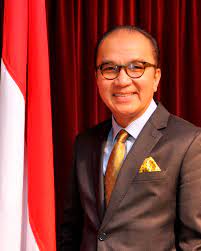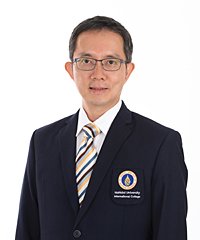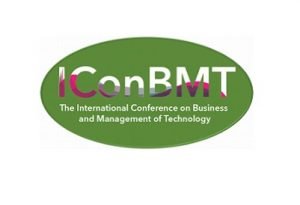
Mr. Tantowi Yahya (Indonesia Ambassador to New Zealand, Samoa, and Tonga)
Mr. Tantowi Yahya is an Indonesian artist, presenter, and politician who is currently the Ambassador of Indonesia to New Zealand, Samoa, and Tonga. He is most famous for hosting the Indonesian version of Who Wants to Be a Millionaire?. In 2009, Tantowi became a member of Indonesian parliament and was reelected as a member of Indonesian parliament in 2014.
How New Zealand SMEs thrive through the COVID-19 Pandemic
Abstract
SMEs and tourism are a significant part of New Zealand Economy. 97% of industries in New Zealand are SEMs, whereas tourism contributes 20,4% of New Zealand’s total export value and NZD 3,8 billion in the form of tax income. The Covid 19 Pandemic severely impacted New Zealand’s SMEs and tourism industry. The government had taken some extraordinary measures to mitigate the spread of the virus. Those measures have brought consequences both on the daily life of its people and the economy. The Jacinda Arden’s administration manage to contain the spreading of the Covid 19 virus across New Zealand while maintaining the wellbeing of the SMEs and the tourism industry which are important parts of the New Zealand’s economy foundation through policies that supports the sustainability of SMEs and tourism industry.

Assoc. Prof. Dr. Yingyot Chiaravutthi (Ph.D.)
| Staff Profile | Scopus Profile |
Assoc. Prof. Dr. Yingyot Chiaravutthi is Associate Dean for Finance and Human Resources, Mahidol University International College, Thailand. Dr. Yingyot Chiaravutthi received his Ph.D. in Economics from University of South Carolina, USA. His specific interest are behavioral economics, international economics, business ethics, and corporate governance. His work appears in UTCC International Journal of Business and Economics, DLSU Business & Economics Review, International Journal of Business Innovation and Research, and other International journals.
AIB and How the Universities in Thailand Dealing with Covid
Abstract
The business world has been catching up with the disruption trend, even prior to the COVID-19. The pandemic simply makes it inevitable. The academic world is no exception. The purpose of the presentation is to share the experiences under the roles of the Chair of the Executive Committee of Academy of International Business (AIB): Asia Pacific Chapter and the Associate Dean of Finance and Human Resources at Mahidol University International College, Thailand. In 2019, AIB: Asia Pacific Chapter’s Executive Committees met and agreed to hold the annual conference at Phanom Penh, Cambodia. Eventually, the online approach was employed, amidst several challenges and uncertainties. Higher education institutions in advanced economies that rely on international students face a similar challenge when travel is prohibited. The situation in Thailand has not been as severe as in other advanced economies until mid-2021. Students’ demand and behavior have changed due to this new health and security concern; and although higher education could overcome several challenges in the short run, it is difficult to predict the long-term consequences.

Prof. James Stanworth (D.Phil.)
| Personal Profile | Scopus Profile |
Prof. James Stanworth is faculty in the Department of Business at National Changhua University of Education and Institute of International Management at National Cheng Kung University, Taiwan. Prof. James received his D.Phil. from the University of Buckingham in the UK. He spent a number of years as a business consultant concerned with the design and improvement of service in enterprise partnerships. His specific interest lies with constructing the meanings Chinese customers give to service quality, technology adoption, and employee motivation towards service. His work appears in Journal of Organizational Behaviour, Computers and Education, Computers in Human Behaviour, Service Business, International Journal of Market Research, Production, Planning and Control, Asia Pacific Journal of Marketing and Logistics and The Journal of Quality.
The Chinese User – Technology Adoption Prospects Post Covid-19
Abstract
Service is central to the way firms co-create value with their customers. Technology increasingly mediates these interactions – whether it be in self-service technologies or online education, which we can see as a service. Covid-19 amplifies the attention on the role played by technology in service. Prior to Covid-19, there was already a marked difference in the adoption of self-service technologies and online learning between users in the West and Far-East. This relates to fundamental differences in cognitive patterns between Western and Far-Eastern peoples and varying assumptions over the role of interpersonal connections versus institutionalized norms. With these understood we are in a position to consider how users may react to technology in service post Covid-19.

